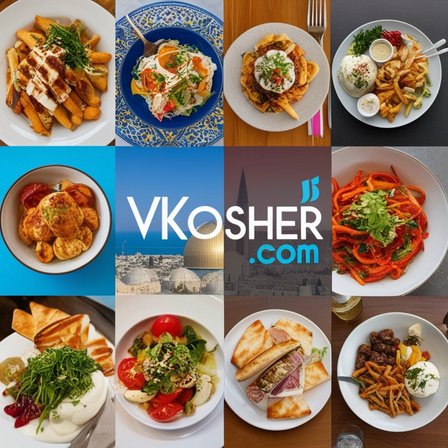Is Chicken Kosher? Understanding the Rules and Practices
Kosher dietary laws, rooted in Jewish tradition, have guided the eating practices of Jewish communities for millennia. One of the key questions that often arises is whether chicken is considered kosher, and if so, under what conditions. This inquiry delves into the intricacies of kashrut (the body of Jewish law dealing with what foods can and cannot be eaten and how those foods must be prepared) and explores how chicken fits into these dietary laws.
The Origins of Kosher Laws
To understand whether chicken is kosher, it's essential first to grasp the foundation of kosher dietary laws. These laws are derived from the Torah, the central reference of the religious Judaic tradition. Specifically, the books of Leviticus and Deuteronomy outline the types of animals that are permissible to eat, as well as those that are forbidden. According to these texts, kosher animals must meet certain criteria: land animals must have cloven hooves and chew their cud, fish must have fins and scales, and birds must not be among the explicitly forbidden species listed.
Birds in Kosher Laws: Where Does Chicken Fit?
The Torah does not provide a clear, direct list of kosher and non-kosher birds, unlike the rules for land animals and fish. Instead, it provides a list of non-kosher birds, with the implication that any bird not on this list is permissible. However, because the identity of some of the birds on the forbidden list is uncertain, rabbinic tradition has played a crucial role in determining which birds are kosher.
Chicken is generally considered kosher because it is not on the Torah’s list of forbidden birds. Over the centuries, Jewish communities have developed traditions about which birds are permissible, with chicken being a staple in many Jewish diets. These traditions are passed down through generations, creating a continuous link between ancient practice and modern observance.
The Shechita Process: How Chicken Becomes Kosher
For chicken to be considered kosher, it must undergo a specific slaughtering process known as shechita. This process is performed by a specially trained individual called a shochet. The shechita process involves a swift, precise cut to the chicken’s throat with a sharp knife, designed to minimize the animal’s suffering. This method of slaughter is rooted in the principles of kashrut, which emphasize compassion and respect for the animal.
Once the chicken has been slaughtered according to kosher law, it must be inspected to ensure it is free of any defects that would render it non-kosher. For instance, the internal organs are examined to ensure there are no signs of disease. If the chicken passes this inspection, it can be processed and prepared as kosher meat.
The Salting Process: Removing Blood from Chicken
One of the critical aspects of kashrut is the prohibition against consuming blood. The Torah explicitly forbids the consumption of blood, which is considered the life force of the animal. To comply with this law, kosher chicken must undergo a salting process after slaughter. The process involves coating the chicken in coarse salt and allowing it to sit for a specified amount of time to draw out any remaining blood. Afterward, the chicken is thoroughly rinsed to remove the salt and any residual blood.
This salting process, known as melichah, is an essential step in ensuring that the chicken is kosher. Without this process, the chicken would not meet kosher standards, even if it were slaughtered correctly.
The Role of Kosher Certification
In today’s global food industry, ensuring that chicken is kosher requires more than just traditional methods. Kosher certification agencies play a vital role in supervising the entire process, from the farm to the table. These agencies ensure that every step of the process, including feeding, slaughtering, salting, and packaging, adheres to kosher standards.
When buying chicken labeled as kosher, consumers are relying on these certification agencies to have rigorously inspected and approved the product. The certification is typically indicated by a symbol on the packaging, representing the agency that has verified the product’s compliance with kosher laws.
Chicken and Kosher Dietary Observance
Beyond the technicalities of slaughtering and processing, the role of chicken in kosher dietary observance is deeply ingrained in Jewish culture and tradition. Chicken is a staple in many traditional Jewish dishes, from Shabbat dinners to holiday meals. The presence of chicken on the table often signifies more than just sustenance; it represents the continuity of Jewish life and the observance of commandments handed down through generations.
For many Jewish families, the act of preparing and consuming kosher chicken is a way of connecting with their heritage. It is a practice that ties them to the broader Jewish community, both past and present. The rituals associated with kosher food preparation, including those for chicken, are not just about following rules but about maintaining a lifestyle that is in harmony with religious values.
Modern Challenges and Adaptations in Kosher Chicken Production
In modern times, the production of kosher chicken faces various challenges, particularly in balancing traditional methods with industrial-scale food production. The growing demand for kosher products has led to the expansion of kosher chicken processing facilities, which must meet both religious standards and modern food safety regulations.
One challenge is ensuring that the high-speed processing lines used in large facilities do not compromise the meticulous requirements of kosher slaughter and processing. To address this, many kosher certification agencies have increased their oversight and introduced more rigorous standards for certification. This includes regular inspections and audits to ensure compliance with kosher laws at every stage of production.
Moreover, the globalization of the food industry has introduced new challenges in sourcing ingredients and ensuring that all aspects of production, including feed for chickens, meet kosher standards. Some kosher consumers also seek out additional certifications, such as organic or free-range, which must be carefully coordinated with kosher certification requirements.
The Debate Over Genetically Modified and Industrially Raised Chickens
Another modern issue that has emerged in the kosher food community is the debate over genetically modified organisms (GMOs) and the ethics of industrial farming. Some Jewish scholars and consumers are concerned about whether chickens raised on GMO feed or in intensive farming conditions can truly be considered kosher. While the primary concern of kashrut laws is the proper slaughter and processing of the animal, broader ethical considerations are becoming increasingly important to many consumers.
In response to these concerns, some kosher certification agencies have begun offering certifications that also take into account the ethical treatment of animals and the use of non-GMO feed. These certifications appeal to consumers who are looking for kosher products that align with their broader ethical values.
Chicken in Kosher Restaurants and Catering
Kosher chicken is a cornerstone of Jewish cuisine and is prominently featured in kosher restaurants and catering services. In these settings, strict adherence to kosher laws is crucial, as consumers trust that the food they are eating complies with the highest standards of kashrut.
Restaurants and caterers that serve kosher chicken must source their products from certified suppliers and maintain separate kitchens and utensils for meat and dairy to prevent cross-contamination. The presence of a mashgiach, a kosher supervisor, is often required to oversee the preparation and ensure that all food served meets kosher standards.
Kosher chicken dishes vary widely depending on cultural influences and regional traditions. From Ashkenazi dishes like chicken soup and schnitzel to Sephardic and Middle Eastern-inspired dishes such as Moroccan chicken with olives and preserved lemons, the versatility of chicken makes it a staple in kosher cuisine around the world.
The Future of Kosher Chicken: Sustainability and Innovation
Looking to the future, the kosher chicken industry is poised to evolve as it addresses new challenges and embraces innovation. Sustainability is becoming an increasingly important consideration, with consumers demanding transparency in how their food is produced. This includes concerns about the environmental impact of chicken farming, animal welfare, and the use of resources.
Some kosher certification agencies are beginning to explore ways to incorporate sustainability into their certification criteria. This could involve promoting more sustainable farming practices, encouraging the use of renewable energy in production facilities, and supporting the development of more environmentally friendly packaging.
At the same time, technological advancements in food production, such as lab-grown meat, present new possibilities and questions for the kosher food industry. As these technologies develop, there will be ongoing debates about whether such products can be considered kosher and, if so, under what conditions.
Conclusion: The Significance of Kosher Chicken in Jewish Life
The question of whether chicken is kosher is not just about adhering to dietary laws; it is about maintaining a connection to Jewish tradition and identity. Kosher chicken plays a vital role in Jewish culinary practices and is a symbol of religious observance and community.
As the kosher food industry continues to grow and adapt to modern challenges, the production of kosher chicken will likely remain a focal point, reflecting the ongoing balance between tradition and innovation. For Jewish communities around the world, kosher chicken is more than just food—it is a testament to the enduring legacy of kashrut and the values it represents.



